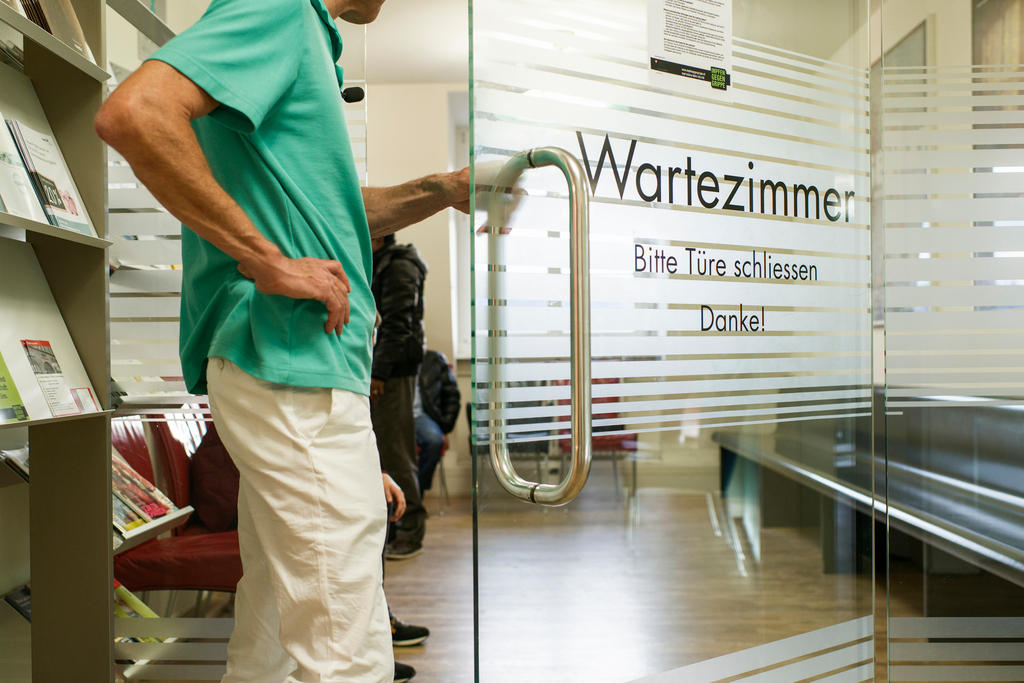
Young doctors show more interest in being GPs

Increasing numbers of young doctors are taking over family doctor surgeries in Switzerland, a survey has found. But it is still not enough to stem the country’s shortage of general practitioners (GPs).
The Swiss Young General Practitioners AssociationExternal link said on Thursday that the situation was more hopeful now than ten years ago, when it was founded to encourage more medical students to enter the profession.
Many family doctors approaching retirement are struggling to find people to take over their practices. The shortfall in GPs currently stands at 2,000 and is expected to riseExternal link to 5,000 by 2025, by which time 60% of GPs will have retired, figures have shown.
One reason that medical students had turned their back on family medicine was the profession was no longer considered to offer good career opportunities and conditions, the association said in a statement.External link
Next generation
Its survey, in which around half of its 1,142 members participated, “gives us for the first time an overview of the next generation of family doctors”, said Sven Streit, head of the development programme at the Institute of Primary Health Care at the University of Bern, which carried out the poll.
It found that 30% of the association’s members (more than 350) had already joined a practice. Most of them were in two-person or group surgeries (up to five doctors), working part-time and both in the city and in rural areas.
More than 40% had taken on a practice in which they had first served as a practice assistant doctor.
Away from tradition
Next-generation family doctors have previously told swissinfo.ch that they wanted to go away from the traditional one-doctor surgery model with its very long hours, including being on call, and share the load between colleagues. This improves work-life balance, they said.

More
Will there be enough family physicians to treat your ailments?
Despite the positive signs, the Swiss Young General Practitioners Association is not resting on its laurels.
“We’re on a good path, but not yet at our goal,” said the association’s future president Regula Kronenberg.
More support for the practice assistant programme as well as flexible work and more easily funded practice models were needed, the association warned. Also important was for more weight to be given to family medicine during medical studies.

In compliance with the JTI standards
More: SWI swissinfo.ch certified by the Journalism Trust Initiative





























You can find an overview of ongoing debates with our journalists here . Please join us!
If you want to start a conversation about a topic raised in this article or want to report factual errors, email us at english@swissinfo.ch.